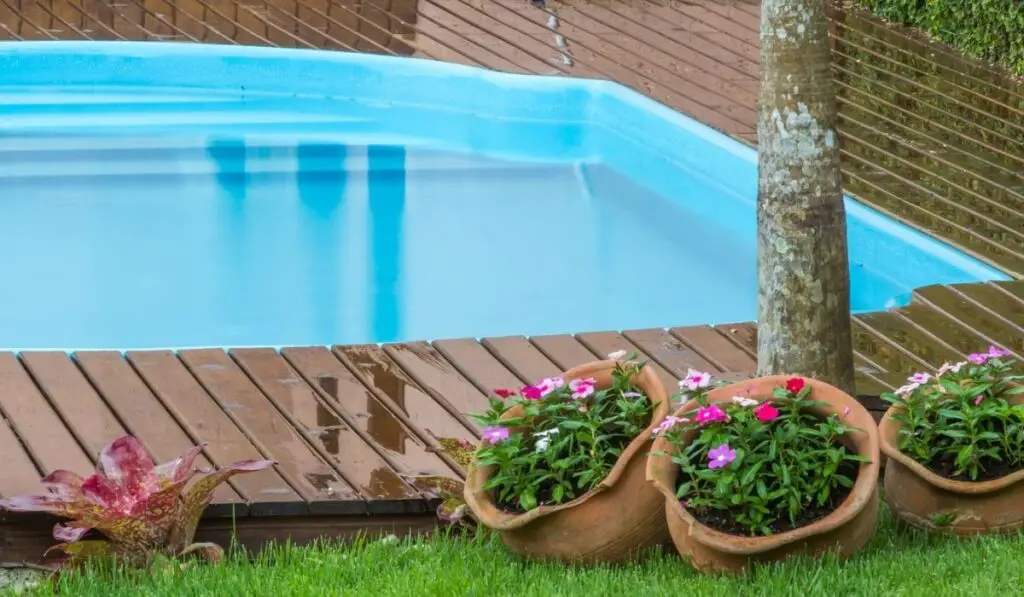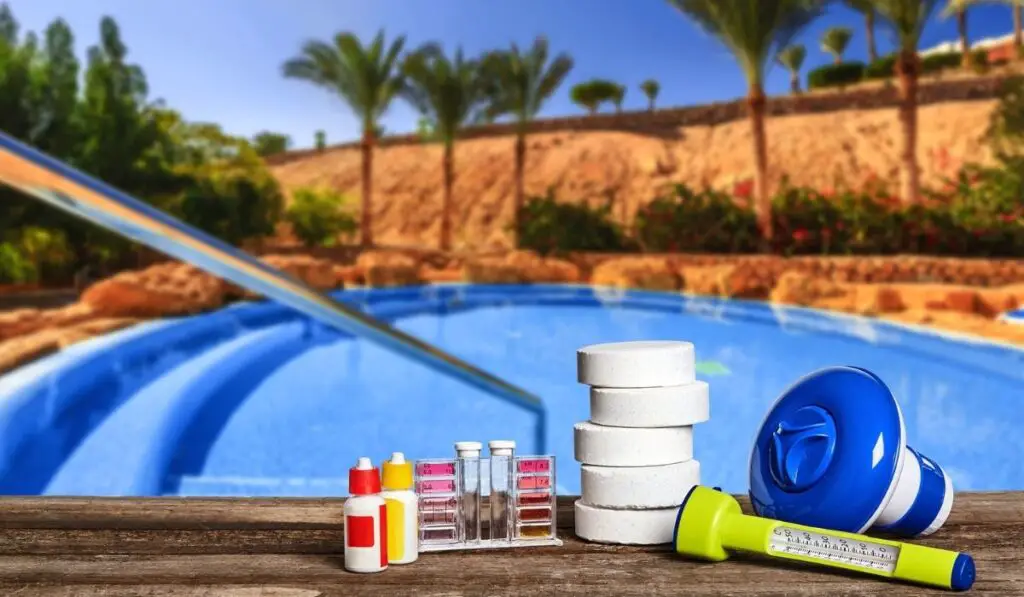Fiberglass swimming pools are easier to maintain than concrete pools, and they can last for decades with proper care. They’re also much safer to use, as they have smooth surfaces that are less likely to cause injury. The question on many pool owners’ minds, however, is whether you can heat a fiberglass pool.
Fiberglass pools can be heated just like other pools, and they even offer better heat retention. The best way to heat your pool is with a gas or electric heater because they raise the temperature quickly and efficiently. Solar heaters are also an option, but they can take longer to heat the water.
There are a few things to keep in mind when heating your fiberglass poo in order to get the best results. Let’s look at some of the different types of heaters you can use to heat your fiberglass pool.
Can a Fiberglass Pool Be Heated?

Fiberglass pools can be heated. In fact, they’re more energy-efficient to heat than concrete pools. The smooth surface of a fiberglass pool helps to reflect heat into the pool water, resulting in less heat loss.
Additionally, fiberglass pools have better heat retention properties than concrete pools, so they require less energy to maintain a comfortable temperature.
There are three main ways of heating a fiberglass pool:
Solar Heating
Solar heating is the most efficient and cost-effective way to heat your pool. Solar panels collect heat from the sun and transfer it to your pool water, raising the temperature of the water. A solar heating system like this one (on Amazon) can keep your pool warm all season long when properly sized.
Gas Heating
Gas heaters are the most common type of heater used to heat fiberglass pools. Gas heaters use natural gas or propane to generate heat, which is then transferred to the pool water.
Gas heaters are relatively inexpensive to operate, but they are not as energy-efficient as solar heaters.
Electric Heating
Electric heaters are the least efficient way to heat a pool, but they are also the most reliable. Electric heaters work by passing electricity through a heating element, which transfers the heat to the pool water. Electric heaters are less expensive to purchase than gas or solar heaters, but they will cost more to operate.
How to Choose a Heating System
Now that you know the different types of heating systems available, how do you choose the best one for your pool? There are a few factors you need to consider when selecting a heating system:
- The size of your pool: The size of your pool will determine the size and type of heater you need. A solar heater may be all you need if you have a relatively small pool. If you have a larger pool, you will need a more powerful heater, such as a gas or electric heater.
- Your climate: The climate in your area will also affect the type of heater you need. If you live in an area with warm weather, a solar heater may be sufficient. If you live in an area with cooler weather, you’ll probably need a more powerful heater to keep your pool warm.
- Your budget: Your budget is another important factor when choosing a heating system. Solar heaters are the most expensive option, but they’re also the most efficient. If you’re on a budget, an electric heater may be the best option for you.
When choosing a heating system, it is important to select one that is properly sized for your pool. If you choose a system that’s too small, it won’t be able to heat your pool effectively.
If you choose a system that’s too large, it’ll be less efficient and will cost more to operate. It’s also important to follow the manufacturer’s instructions when installing and operating your heater. Failure to do so could void your warranty or cause damage to your pool.
How Much Does It Cost to Heat a Fiberglass Pool?
The cost of heating a fiberglass pool depends on the type of heater you use. Solar heaters are the most expensive option, but they’re also the most efficient. They can easily cost $150 each time you turn them on to heat a big pool with a deep end. But that temperature should last for a bit as long as it’s not very cold outside.
Electric heaters are less expensive to purchase than gas or solar heaters, but they cost more to operate. Gas heaters are the least costly option, but they’re also the least efficient. Solar has the lowest install and operating costs, but it’s obviously limited by the weather too.
The best way to choose a heating system is to consult with a professional. A professional will be able to help you select the best system for your pool based on your specific needs and budget.
How Do You Maintain a Fiberglass Pool?

Fiberglass pools are easier to maintain than concrete pools. They’re less likely to crack or leak and require less chemical treatment. Fiberglass pools also have a smooth surface that’s easy to clean.
Concrete pools require more work to maintain. They are prone to cracking and leaking, and they need more chemical treatment. Concrete pools also have a rough surface that’s difficult to clean.
If you’re looking for a low-maintenance pool, fiberglass is the way to go. Fiberglass pools require less work to keep them clean and running properly. To keep your fiberglass pool in good condition, follow these tips:
- Test the water regularly and add chemicals as needed.
- Use a pool brush (on Amazon) to clean the walls and floor of the pool weekly.
- Vacuum the pool weekly.
- Use a pool skimmer (on Amazon) to clear away leaves and other debris as needed.
- Have the pool professionally cleaned every few years.
